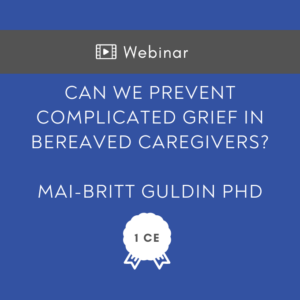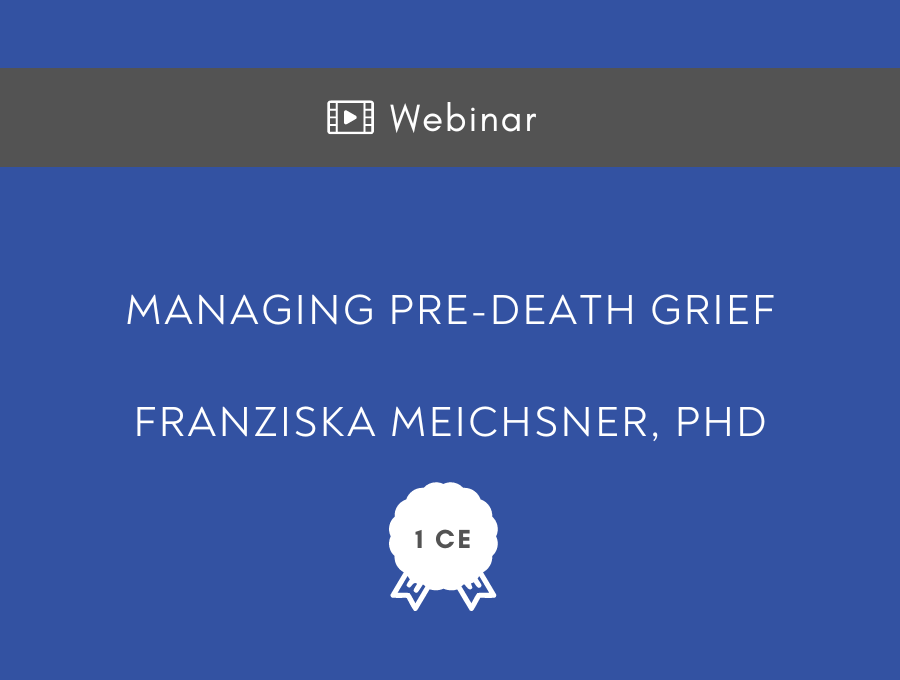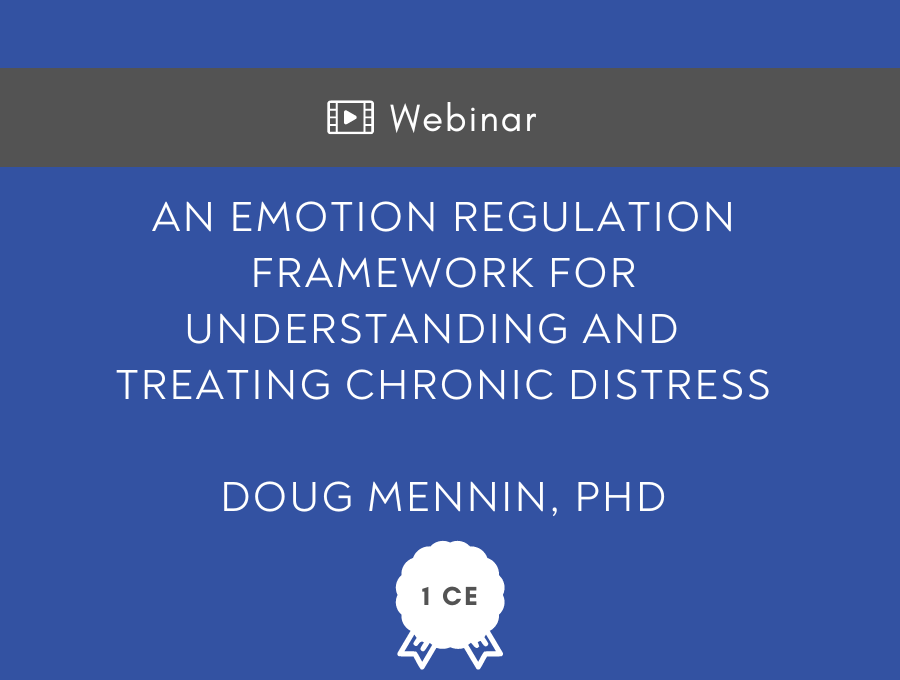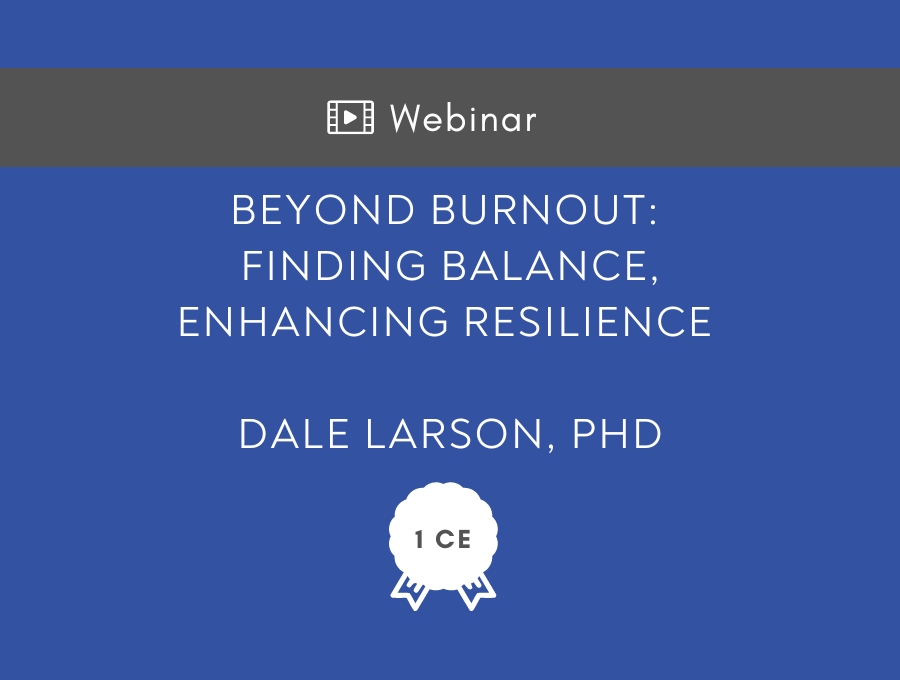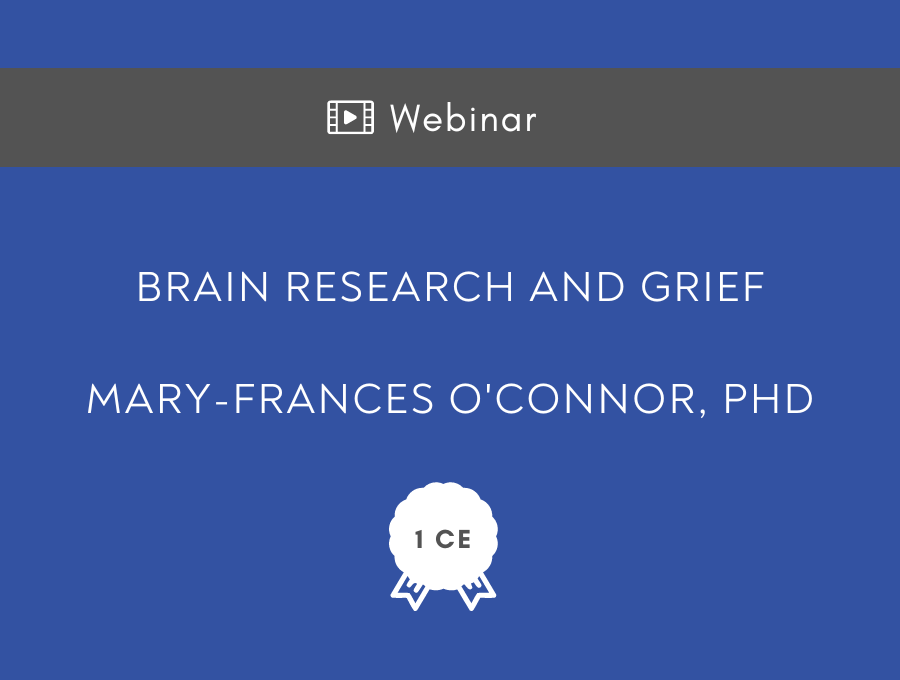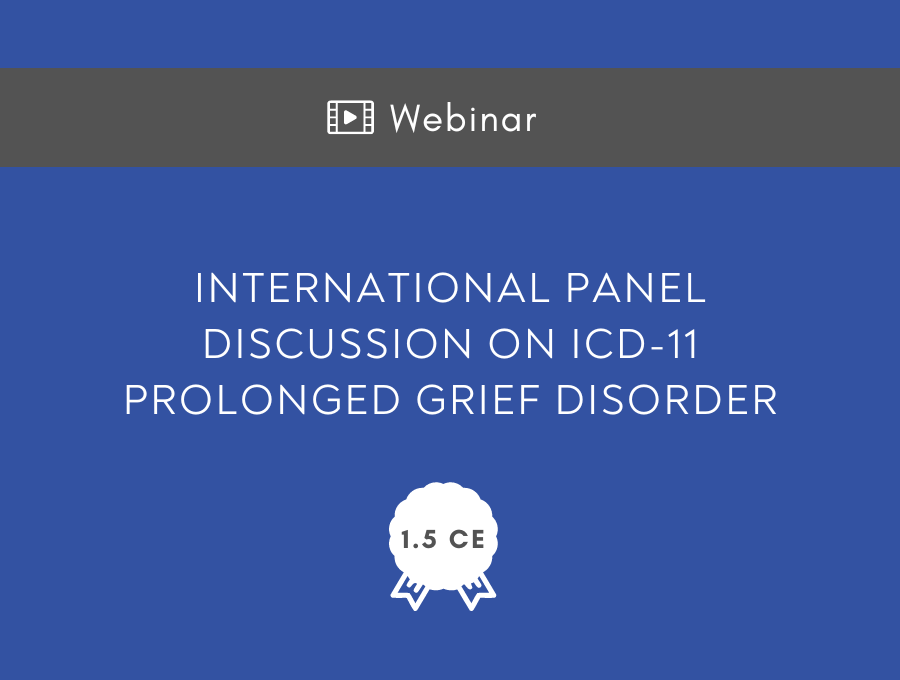Subtotal: $30.00
Managing Pre-Death Grief – 1 CE Hour
$30.00
Pre-death grief is among the most debilitating aspects of caring for a loved one with dementia. Grief is a natural response to witnessing changes in the care recipient’s personality and experiencing multiple losses in the relationship with the person over the course of the disease. However, caregivers are often unaware that their painful emotional, cognitive, and physical experiences are related to grief or try to avoid such reactions. In the light of findings that pre-death grief is related to caregiver burden and depression, interventions that help caregivers cope with pre-death grief are urgently needed.
The webinar presents the development of a grief-specific intervention for caregivers and its integration into a larger CBT-based program. The application of intervention strategies is illustrated using a case example and insights into the effectiveness of the program are provided. A short scale for the assessment of pre-death grief is also introduced.
Product Description
Pre-death grief is among the most debilitating aspects of caring for a loved one with dementia. Grief is a natural response to witnessing changes in the care recipient’s personality and experiencing multiple losses in the relationship with the person over the course of the disease. However, caregivers are often unaware that their painful emotional, cognitive, and physical experiences are related to grief or try to avoid such reactions. In the light of findings that pre-death grief is related to caregiver burden and depression, interventions that help caregivers cope with pre-death grief are urgently needed.
The webinar presents the development of a grief-specific intervention for caregivers and its integration into a larger CBT-based program. The application of intervention strategies is illustrated using a case example and insights into the effectiveness of the program are provided. A short scale for the assessment of pre-death grief is also introduced.
Webinar recorded on December 14, 2018.
Learning Objectives
- Describe the origin and characteristics of pre-death grief in dementia caregivers
- Recall how symptoms of pre-death grief can be assessed
- Recognize how grieving caregivers can be successfully supported with a cognitive-behavioral intervention program
About the Presenter
Dr. phil. Dipl.-Psych. Franziska Meichsner is a post-doctoral researcher at the Friedrich Schiller University Jena, Germany and a Visiting Research Scientist at the Center for Complicated Grief. She has a strong interest in Complicated Grief, non-death losses, and mental health in caregivers of people with dementia and older adults. Her work focuses on the development and evaluation of psychological interventions and the identification of mechanisms of change in psychotherapy. Dr. Meichsner is also a cognitive-behavioral therapist with an interest in psychotherapy for older adults and third-wave approaches to CBT. She studied Psychology at the Friedrich Schiller University Jena, Germany and Tulane University, New Orleans and received her PhD in 2016.
Continuing Education
American Psychological Association
The Center for Prolonged Grief at Columbia School of Social Work is approved by the American Psychological Association to sponsor continuing education for psychologists. The Center for Prolonged Grief maintains responsibility for this program and its content.
Note: Many state boards recognize the APA approval. Please check with your state licensing board.
New York State Education Department
- NYSED State Board for Psychology recognizes the Center for Prolonged Grief as an approved provider of continuing education for licensed psychologists (#PSY-0150).
- NYSED Board for Social Work recognizes the Center for Prolonged as an approved provider of continuing education for licensed social workers (#SW‐0727).
- NYSED State Board for Mental Health Practitioners recognizes the Center for Prolonged Grief as an approved provider of continuing education for licensed marriage and family therapists (#MFT-0080).
Note: Non-NYS social workers, marriage and family therapists, and other professionals, please check with your state licensing board. Many states have recognized our continuing education programs as we are at a CSWE-accredited institution and part of a regionally accredited university.
